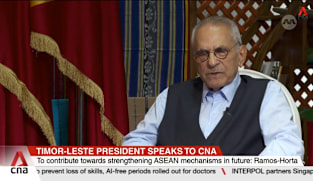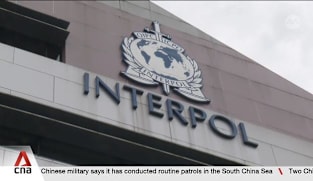Adjournment motion on fair sharing of losses by scam victims
It is time for the Government to act swiftly and decisively on scam losses. Of paramount importance is ensuring that Singaporeans have confidence in their banking system and that those who have suffered a loss are fairly compensated. MP Sylvia Lim made this call in an adjournment motion in Parliament on Monday (Sep 18), saying the framework for loss sharing is “overdue”. She pointed out that requiring customers to bear losses when they were not grossly negligent would not be fair. “The Government should consider developments in other jurisdictions, such as the UK, to ensure that banks bear the cost of reimbursing victims, as they are the best place to identify and prevent such scams,” she said. She wanted to know if the timeframe to release the consultation on the framework by the third quarter of this year is still on track. If it is not, what is causing the delay and by when can the paper be released? She pointed out that it is unjust to expect bank customers to bear the proportion of the loss depending on whether and how they have fallen short of their responsibilities. This is because consumers are not sufficiently equipped to combat scams. Moreover, deciding what is equitable will take time and may be irrelevant to the more vulnerable in society. As to who should lead in combating scams, banks are best positioned and resourced to do so. Ms Lim said individual responsibility alone is insufficient to combat increasingly sophisticated and malicious scams. She called for victims to be fully reimbursed in certain situations and suggested additional safeguards for customers, such as physical tokens. She also urged the Government to consider ensuring that the loss-sharing framework applies retrospectively. A hands-off approach by the Monetary Authority of Singapore (MAS) is “unacceptable”, she added. “I urge the Government to do its part to ensure that we do right by bank customers,” she said. Responding, Minister of State for Trade and Industry and MAS Board Member Alvin Tan said the Government aims to publish a public consultation paper next month on the framework for fair sharing of losses by scam victims. For a start, it will focus on phishing scams. Mr Tan said the authorities are working with industry and international partners to tackle scams. Addressing the issue of who should be responsible for scam losses, Mr Tan said this is a difficult issue as the amounts lost in any single case can be substantial. “We must hence strike a balance between fairness, accountability and compassion,” he said. Mr Tan noted that there are some who feel that banks can easily absorb the losses arising from individual scam cases. “However, full restitution, without due consideration of culpability, is neither fair nor desirable. Doing so can erode vigilance and personal responsibility and lull users into complacency,” he said. Mr Tan stressed the need for the public to take active steps to protect themselves, as a discerning and vigilant public remains an “essential pillar in our fight against scams”.
It is time for the Government to act swiftly and decisively on scam losses. Of paramount importance is ensuring that Singaporeans have confidence in their banking system and that those who have suffered a loss are fairly compensated. MP Sylvia Lim made this call in an adjournment motion in Parliament on Monday (Sep 18), saying the framework for loss sharing is “overdue”. She pointed out that requiring customers to bear losses when they were not grossly negligent would not be fair. “The Government should consider developments in other jurisdictions, such as the UK, to ensure that banks bear the cost of reimbursing victims, as they are the best place to identify and prevent such scams,” she said. She wanted to know if the timeframe to release the consultation on the framework by the third quarter of this year is still on track. If it is not, what is causing the delay and by when can the paper be released? She pointed out that it is unjust to expect bank customers to bear the proportion of the loss depending on whether and how they have fallen short of their responsibilities. This is because consumers are not sufficiently equipped to combat scams. Moreover, deciding what is equitable will take time and may be irrelevant to the more vulnerable in society. As to who should lead in combating scams, banks are best positioned and resourced to do so. Ms Lim said individual responsibility alone is insufficient to combat increasingly sophisticated and malicious scams. She called for victims to be fully reimbursed in certain situations and suggested additional safeguards for customers, such as physical tokens. She also urged the Government to consider ensuring that the loss-sharing framework applies retrospectively. A hands-off approach by the Monetary Authority of Singapore (MAS) is “unacceptable”, she added. “I urge the Government to do its part to ensure that we do right by bank customers,” she said. Responding, Minister of State for Trade and Industry and MAS Board Member Alvin Tan said the Government aims to publish a public consultation paper next month on the framework for fair sharing of losses by scam victims. For a start, it will focus on phishing scams. Mr Tan said the authorities are working with industry and international partners to tackle scams. Addressing the issue of who should be responsible for scam losses, Mr Tan said this is a difficult issue as the amounts lost in any single case can be substantial. “We must hence strike a balance between fairness, accountability and compassion,” he said. Mr Tan noted that there are some who feel that banks can easily absorb the losses arising from individual scam cases. “However, full restitution, without due consideration of culpability, is neither fair nor desirable. Doing so can erode vigilance and personal responsibility and lull users into complacency,” he said. Mr Tan stressed the need for the public to take active steps to protect themselves, as a discerning and vigilant public remains an “essential pillar in our fight against scams”.



















